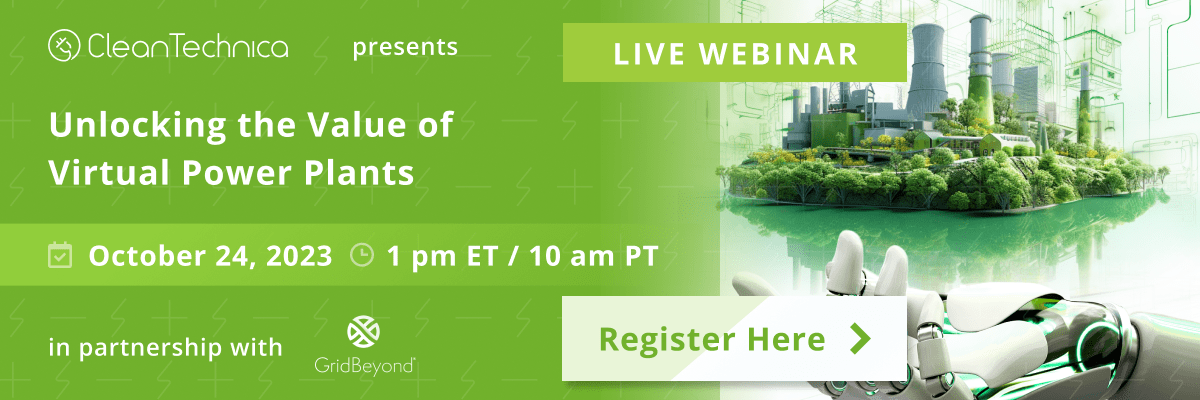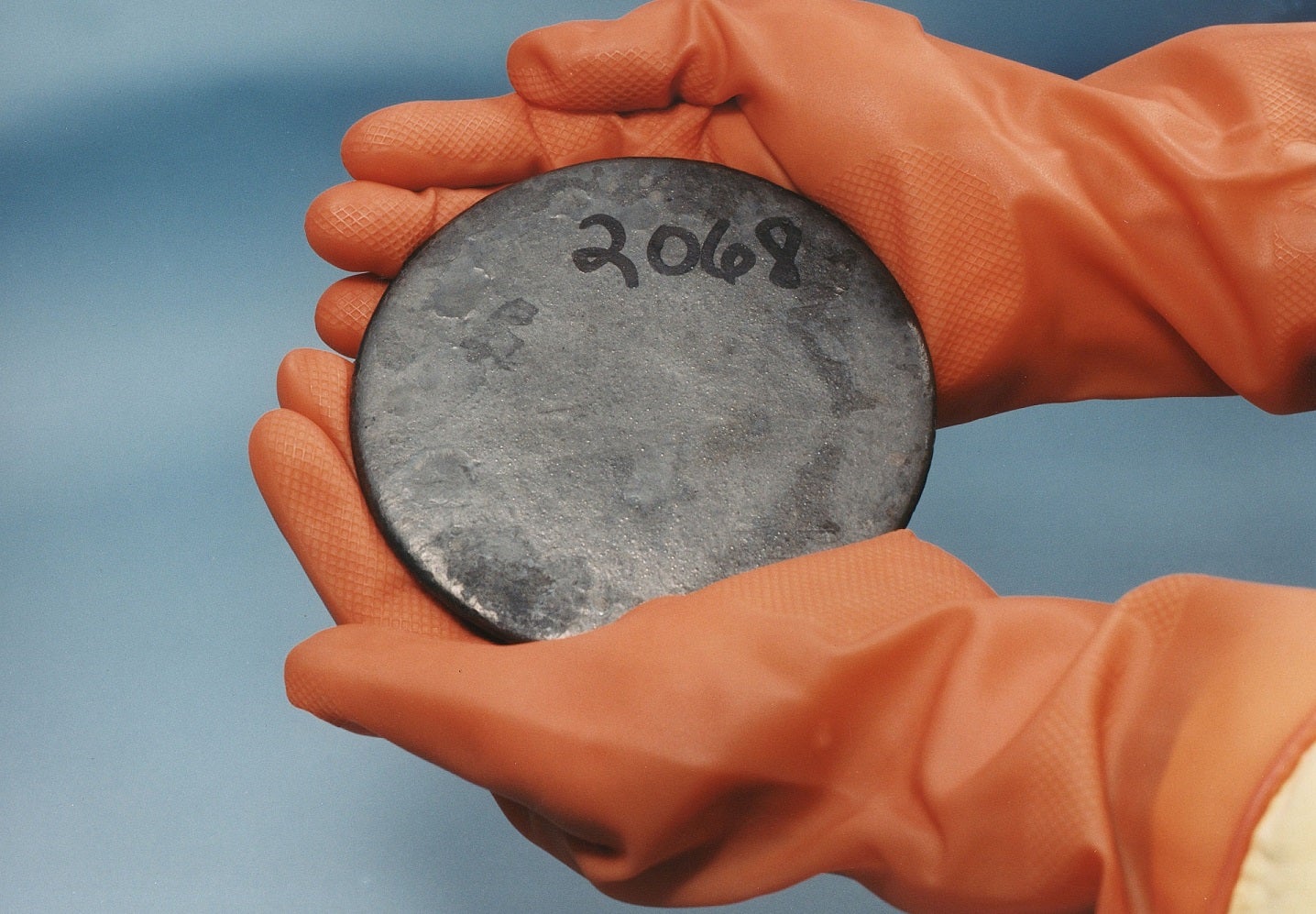Sign up for daily news updates from CleanTechnica on email. Or follow us on Google News!
The Biden administration has been trying to make American manufacturing happen again, and happening it is. The latest sign of a domestic nuts-and-bolts revival comes from the US startup Factorial Energy, which is launching a new solid-state EV battery factory in its home state of Massachusetts. If all goes according to plan, the new high-performance batteries will help push gasmobiles out the door sooner rather than later.
The Solid-State EV Battery Of The Future
As the name suggests, a solid-state EV battery deploys a solid material instead of the familiar liquid electrolyte used in conventional lithium-ion EV batteries.
Liquid electrolytes have done heroic work in the battle to replace gas and diesel fuel with battery-electric drive in the early 2000s, but new and improved technologies are starting to take shape, and solid-state technology is one of them.
Solid-state electrolytes solve a pesky problem that bedevils liquid electrolytes, namely, the formation of tiny branch-like growths called dendrites. Over time, dendrites interfere with battery capacity and charging times.
Lithium-ion batteries are constantly improving, and that includes engineering workarounds to solve the dendrite problem, too. Still, a solid-state EV battery can offer longer range, faster charging times, and lower costs (see lots more CleanTechnica coverage here).
As for why we don’t have a solid-state EV battery right now, that’s a good question. The invention of the first thin film solid-state battery is credited to Keiichi Kanehori, whose name appears in a 1985 patent filing under the umbrella of Hitachi.
There being no such thing as a free lunch, scaling up the technology for use in electric vehicles has been a tricky business. Fully solid electrolytes are typically made from specialized plastics or ceramics, including glass. Getting them to perform at temperatures under 60 degrees centigrade without breaking apart is among the many challenges.
A major breakthrough occurred in 2017, when a team based at the University of Texas Cockrell School of Engineering introduced their solid-state battery with an electrolyte based on glass. The teamwork combined UT Professor John Goodenough with senior research fellow Maria Helena Braga, who had previously worked on glass electrolytes at the University of Porto in Portugal.
Auto Makers In Hot Pursuit Of New Solid-State EV Battery
The UT breakthrough sparked a ripple of excitement through the world of EV battery research, but it took a few more years for investors to catch on. Lately it’s been a free-for-all, as the big global auto manufacturers stumble over each other in the race to nail down a solid-state EV battery deal of their own.
Into this mix comes Factorial with a new solid-state EV battery called FEST® (Factorial Electrolyte System Technology). CleanTechnica took note of the company back in 2021, when the auto makers Daimler and Stellantis signaled they were interested in the technology.
Don’t get too excited just yet. Factorial describes its new EV battery as quasi-solid-state, which is not quite the same thing as a full solid-state EV battery. Still, it’s pretty close. Detroit News took a look at the technology last year and had this to say:
“A liquid at the interface between the solid electrolyte through which ions move to charge and discharge the battery and electrodes — the anode and cathode, which are the positive and negative sides of a battery — helps to decrease the interfacial resistance. That means ions can travel through the battery without as much external pressure. This eases the manufacturing process.”
Quasi or not, Factorial slipped out of stealth mode in 2021 with the launch of a 40 Amp-hour version of its FEST battery. “Battery platforms based on FEST yield 20-50% improvements in driving range without sacrificing pack longevity, and surpass prevailing EV battery performance standards, including those for energy density, cycle life, and safety,” the company enthused.
That was enough to convince investors, who dropped $200 million in a Series D round of funding on the company in January of 2022. Since then, the Factorial team has reached the all important 100+ Amp-hour mark and has delivered samples to their partners for testing.
For the record, Daimler rebranded as Mercedes-Benz last year and it is still on board with Factorial along with Stellantis. Hyundai and Kia also signed on to the project in 2021.
Bidenomics!
Last June, the White House credited the economic policies of the Biden administration with sparking a nationwide boom in manufacturing jobs, and Factorial is another feather in its cap.
Earlier this month Factorial announced plans for a new battery R&D facility to be located in Massachusetts, and on October 23 the company is celebrating the official opening ceremony for its new solid-state EV battery factory, located in the Boston-area suburb of Methuen.
The new factory sports an assembly line of up to 200 megawatt-hours, which makes it the largest solid-state EV battery manufacturing facility in the US so far. The company is planning to ramp up in stages before putting the pedal to the metal.
The company’s Executive Chairman, Joe Taylor (formerly CEO of Panasonic North America), also notes that the new factory will enable US automakers to take advantage of tax incentives, which are available to domestic manufacturers under the Inflation Reduction Act.
“Automaker demand for American-made batteries is high to produce electric or hybrid vehicles that qualify for incentives,” Taylor said. “Our facility will manufacture automotive-sized solid-state batteries at pre-production speed and volume, illuminating a clear path to mass production and reaching economies of scale.”
What About The Lithium?
Part of the allure of solid-state batteries is the potential for improving materials recovery and recycling. Factorial is working that end of the solid-state EV battery room as well. In June, the company announced a lithium recycling research partnership with the Korean firm Young Poong, which specializes in non-ferrous metal smelting and refining.
The agreement provides for Factorial to provide excess lithium-metal from both its pilot-scale and full scale operations, which Young Poong will recycle and tweak into a reusable material that can be deployed to make new batteries. That’s not a simple as it sounds. The work involves developing a new recycling system specific to the FEST platform.
Even without post-consumer recycling, lithium recovery from factories is expected to make a significant contribution to the lithium supply chain. “Today, it is estimated in the U.S., less than 10% of lithium batteries are recycled, with experts forecasting that in 2025, production scrap will account for 78% of the pool of recyclable materials from batteries,” Factorial explains.
No word yet on post-consumer recycling plans, though Young Poon suggests that its research will lay the groundwork for recycling end-of-life EV batteries, too.
Where’s Congress?
Of course, no story about the solid-state EV battery of the future would be complete without a mention of the goings-on over at the US House of Representatives.
The House has been unable to conduct normal business since October 4, when Republican members of Congress fired Representative Kevin McCarthy from the all-important post of Speaker. Like suited-up lemmings in search of a cliff, Republicans have spent the past two weeks skittering from one end of the Capitol Building to another, without getting any closer to electing a new Speaker.
That’s all well and good for any member of Congress who aims to make hash out of democracy in the US (spoiler alert: all of these Republicans), but the rest of us would like to know how long these folks expect to collect their salaries from us taxpayers without doing any actual work.
Photo: Solid-state EV battery from Factorial Energy, via Globalnewswire.com.
Follow me @tinamcasey on Bluesky, Threads, Post, LinkedIn, and Spoutible.
Have a tip for CleanTechnica? Want to advertise? Want to suggest a guest for our CleanTech Talk podcast? Contact us here.
EV Obsession Daily!
I don’t like paywalls. You don’t like paywalls. Who likes paywalls? Here at CleanTechnica, we implemented a limited paywall for a while, but it always felt wrong — and it was always tough to decide what we should put behind there. In theory, your most exclusive and best content goes behind a paywall. But then fewer people read it!! So, we’ve decided to completely nix paywalls here at CleanTechnica. But…
Thank you!
Community Solar Benefits & Growth
CleanTechnica uses affiliate links. See our policy here.





